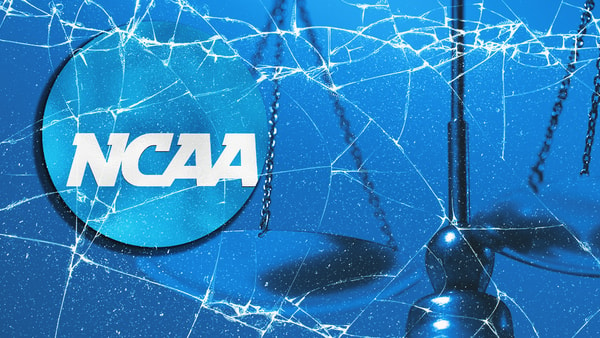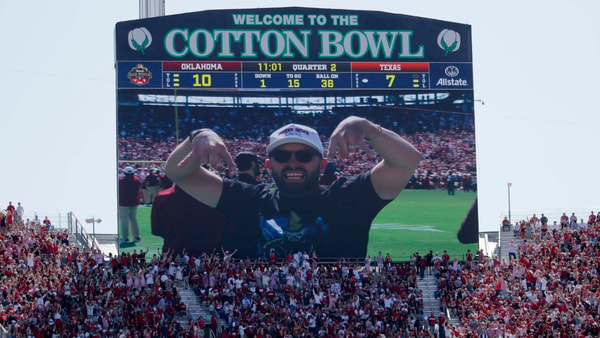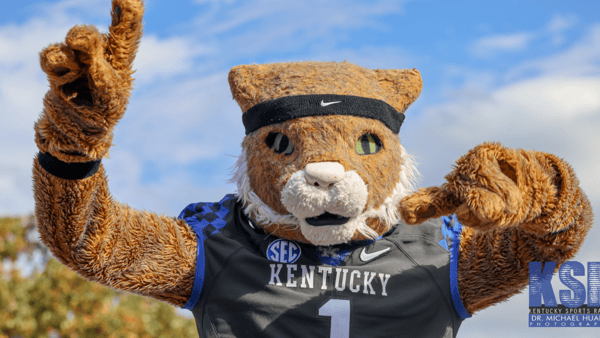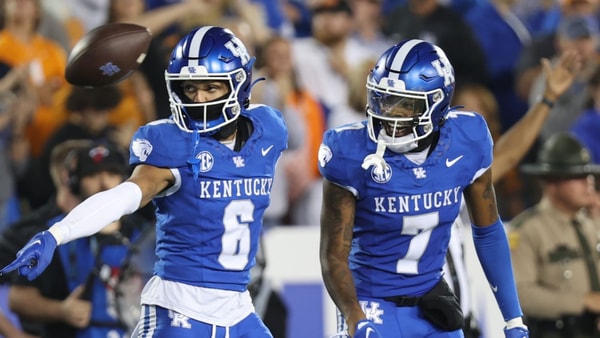[caption id="attachment_200590" align="alignnone" width="600"]

@SMossWKYT[/caption]
Eighteen months ago in
this space, I shared my crazy idea to remove the statue of Confederate President Jefferson Davis from Kentucky's Capitol Rotunda, and replace it with a tribute to Muhammad Ali.
It turned out to be the most viral of my verbalizations, prompting a few TV news
stories, a
petition that secured hundreds of signatures, and of course, deep personal invective from my loyal clan of KSR comment-haters. And like most of my most brilliant brainchildren, the issue disappeared from public discussion almost as soon as it was raised.
Then just six months later, in the wake of the 2015 Charlestown tragedy in which a Confederate flag-waving murderer united the nation against racism, nearly all of Kentucky's most powerful policymakers – including U.S. Senator Mitch McConnell, Governor Matt Bevin, Senate President Robert Stivers and House Speaker Greg Stumbo –
called for the removal of the Davis statue from the Rotunda.
As we commemorate Muhammad Ali's passing on Friday, there's no better moment to replace the symbol of the nation's worst era by honoring The Greatest of All Time.
===
Perhaps to compensate for all of the bile we hurl and tweet at celebrities during their lifetimes, we tend to glorify, even sanctify them in death, photoshopping their warts and retouching their blemishes. In the past 48 hours, it's been tough to escape the over-the-top tributes to the Champ, many employing with straight-faced sincerity the same hyperbole that Ali self-recited with his mischievous wink and smile.
Like all of us, Muhammad Ali was a flawed man. Certainly, he was more colorful than your average Joe (Louis or Frazier); but the cheerful, inspirational poet-laureate of sport was also at times a mirror on one of the angriest times in American history. Particularly during the late 1960s, a time of acrimony and assassination, Ali could be a divisive figure, blurting ugly, regrettable statements about whites, Jews, women, even some of his African-American opponents.
But Ali came to represent something much greater than himself. And that's precisely why he belongs in Kentucky's version of Statuary Hall. Abraham Lincoln uttered horribly
racist statements as a young pol, and engaged in ethically questionable chicanery to win election and secure passage of key legislation. But his coincident accomplishment of preserving the union and freeing the slaves makes him the symbol of everything that is right and good and just about our democracy. Henry Clay was a four-time presidential loser whose "
corrupt bargain" scandalized American politics, epitomizing a rigged political system in which the elite ignored the people's will. (Sound familiar?) Yet his subsequent work to head off disunion as the "Great Compromiser" makes him forever a celebrated role model for civility, public service and patriotism. By contrast, Jefferson Davis merited some extraordinary achievements -- he was, for example, the
prime mover behind the glorious modern U.S. Capitol's design -- but he will forever remain the very epitome of the most shameful, disgraceful undertaking in American history.
As our center of governance, the Capitol should provide a symbolic celebration of our Commonwealth's unique greatness. And as Democrats and Republicans have united to evict Davis, there’s no more fitting Rotunda replacement than a proud descendent of slaves, as well as the most internationally influential Kentuckian of the modern era.
I've already had plenty
to say about why Muhammad Ali belongs in the Capitol Rotunda. But a few points bear repeating.
Foundationally, he was and will always be a Kentuckian. Ali didn’t simply make a brief appearance in the Bluegrass State like Honest Abe: He was a proud product of Louisville, raised by a supportive middle class family and nurtured by a devoted neighborhood community. Despite the racism he endured in his childhood and early adult years, the Louisville Lip ultimately chose to locate his award-winning
museum and civil rights center in his hometown, where he soon will rest in peace.
In a state, moreover, which reveres sport -- and where the games children play do more perhaps than any other social force to unite diverse populations and to
promote equality, selflessness and community -- Ali stood far above his peers. As
Sports Illustrated would recognize, he was the Sportsman of the Century. When he reigned, boxing was the sport of kings. Since The People’s Champion retired, the sport has lost most of its relevance. Indeed, the sport's popular decline was precipitated by Ali's physical decline; public awareness of the impact of his brain trauma de-romanticized boxing, and has helped prompt critical reform efforts to promote safety in other contact sports like football.
Most significant, though, was the invaluable role Ali played in redressing the ills brought to our country by Jefferson Davis and his ilk. His rise coincided with this country’s most moral moment – the Civil Rights Movement – and unlike other sports greats who shirked from politics (Ã la Michael Jordan who
famously noted that “Republicans buy sneakers, too"); Ali, true to form, couldn’t keep his mouth shut.
Now, as noted above, Muhammad Ali was no mainstream moderating figure. Early on, he took issue with less confrontational leaders, joined the über-controversial Nation of Islam, emerged as a vocal proponent of the nascent “Black Power” movement, and called for radical change to the institutional racism of white-dominated society. Most contentiously, he drew upon his new faith, as well as his deep antagonism to Jim Crow America, to claim status as a conscientious objector and refuse to be drafted for the Vietnam War. “I ain’t got no quarrel with them Viet Cong — no Viet Cong ever called me N___,” he famously intoned. “Why should they ask me to put on a uniform and go ten thousand miles from home and drop bombs and bullets on brown people in Vietnam while so-called Negro people in Louisville are treated like dogs and denied simple human rights?”
Compare that to many of his wealthy and well-connected contemporaries who avoided combat through deferment or claims of injury: luminaries such as Bill Clinton, George W. Bush, Dick Cheney and Donald Trump. Ali was no "draft dodger"; he confronted the issue head on, risking his career and even his freedom to honor his faith, as well as to protest what he believed was a deeply unjust war and a draft that placed a generation's poor and disenfranchised on the front lines while their wealthier peers went to grad school or the National Guard.
Many Americans of an older generation will never forgive him. But whether or not you agreed with his principled stance, Muhammad Ali’s long-term positive political and societal impact is undeniable. The
Supreme Court decision that his draft-confronting prompted served as a landmark sanctification of our nation’s freedoms of speech and religion. And by standing up loudly and courageously to the segregation-infected political infrastructure, Ali’s inspiration of young African-Americans, struggling to find a voice in their communities, was incomparable. In his later years, the Champ emerged as an outspoken champion for peace and social justice. His final major pronouncement
decried the emergence of anti-Muslim hysteria, pointing to his example as a living, poignant reminder of the brilliance and resoluteness of American diversity. As civil rights activist
Julian Bond noted, “It’s hard to imagine that a sports figure could have so much political influence on so many people.”
A man who achieved greatness through the most violent of sports achieved immortality as a loud and proud voice for non-violence. It is that personal and political evolution that has earned him a spot in the Rotunda, our Commonwealth's cathedral, a daily reminder to our most important citizens – from the officials who lead the state, to the schoolchildren who visit our capital -- of the meaning of our communal mission.
===
Some obstacles remain before The Greatest arrives in the Rotunda. First, Ali's faith prohibits his representation in three-dimensional form, so the tribute must come in the firm of a portrait, picture or mural, in lieu of a statue. (These leaves room for another statue -- how about civil rights heroine, State Senator Georgia Powers?) Second, current state regulations require an honoree to be dead for 40 years before being enshrined. Of course, rules are made to be adjusted. Finally, despite the bi-partisan consensus for Davis' removal, he's still standing: the Kentucky Historic Properties Advisory Commission
voted last August to retain the Confederate smear. But with a new Administration reversing many actions of its predecessor, this would be one rare 180 that this proud Steve Beshear appointee would heartily applaud.
Long after he is gone, Muhammad Ali's legacy will continue with the millions, if not billions, of people who have been inspired by the personal risks he took to champion justice and freedom. Let's pay the Champ one final honor – and take a large step toward repairing our state’s cultural fabric – by adding his statue to Kentucky’s Capitol Rotunda.
===
Agree with me? Please sign
this petition, and I will deliver it to Governor Matt Bevin, House Speaker Greg Stumbo and Senate President Robert Stivers.
Disagree? Don't pull your punches in the comments below.
 @SMossWKYT[/caption]
Eighteen months ago in this space, I shared my crazy idea to remove the statue of Confederate President Jefferson Davis from Kentucky's Capitol Rotunda, and replace it with a tribute to Muhammad Ali.
It turned out to be the most viral of my verbalizations, prompting a few TV news stories, a petition that secured hundreds of signatures, and of course, deep personal invective from my loyal clan of KSR comment-haters. And like most of my most brilliant brainchildren, the issue disappeared from public discussion almost as soon as it was raised.
Then just six months later, in the wake of the 2015 Charlestown tragedy in which a Confederate flag-waving murderer united the nation against racism, nearly all of Kentucky's most powerful policymakers – including U.S. Senator Mitch McConnell, Governor Matt Bevin, Senate President Robert Stivers and House Speaker Greg Stumbo – called for the removal of the Davis statue from the Rotunda.
As we commemorate Muhammad Ali's passing on Friday, there's no better moment to replace the symbol of the nation's worst era by honoring The Greatest of All Time.
===
Perhaps to compensate for all of the bile we hurl and tweet at celebrities during their lifetimes, we tend to glorify, even sanctify them in death, photoshopping their warts and retouching their blemishes. In the past 48 hours, it's been tough to escape the over-the-top tributes to the Champ, many employing with straight-faced sincerity the same hyperbole that Ali self-recited with his mischievous wink and smile.
Like all of us, Muhammad Ali was a flawed man. Certainly, he was more colorful than your average Joe (Louis or Frazier); but the cheerful, inspirational poet-laureate of sport was also at times a mirror on one of the angriest times in American history. Particularly during the late 1960s, a time of acrimony and assassination, Ali could be a divisive figure, blurting ugly, regrettable statements about whites, Jews, women, even some of his African-American opponents.
But Ali came to represent something much greater than himself. And that's precisely why he belongs in Kentucky's version of Statuary Hall. Abraham Lincoln uttered horribly racist statements as a young pol, and engaged in ethically questionable chicanery to win election and secure passage of key legislation. But his coincident accomplishment of preserving the union and freeing the slaves makes him the symbol of everything that is right and good and just about our democracy. Henry Clay was a four-time presidential loser whose "corrupt bargain" scandalized American politics, epitomizing a rigged political system in which the elite ignored the people's will. (Sound familiar?) Yet his subsequent work to head off disunion as the "Great Compromiser" makes him forever a celebrated role model for civility, public service and patriotism. By contrast, Jefferson Davis merited some extraordinary achievements -- he was, for example, the prime mover behind the glorious modern U.S. Capitol's design -- but he will forever remain the very epitome of the most shameful, disgraceful undertaking in American history.
As our center of governance, the Capitol should provide a symbolic celebration of our Commonwealth's unique greatness. And as Democrats and Republicans have united to evict Davis, there’s no more fitting Rotunda replacement than a proud descendent of slaves, as well as the most internationally influential Kentuckian of the modern era.
I've already had plenty to say about why Muhammad Ali belongs in the Capitol Rotunda. But a few points bear repeating.
Foundationally, he was and will always be a Kentuckian. Ali didn’t simply make a brief appearance in the Bluegrass State like Honest Abe: He was a proud product of Louisville, raised by a supportive middle class family and nurtured by a devoted neighborhood community. Despite the racism he endured in his childhood and early adult years, the Louisville Lip ultimately chose to locate his award-winning museum and civil rights center in his hometown, where he soon will rest in peace.
In a state, moreover, which reveres sport -- and where the games children play do more perhaps than any other social force to unite diverse populations and to promote equality, selflessness and community -- Ali stood far above his peers. As Sports Illustrated would recognize, he was the Sportsman of the Century. When he reigned, boxing was the sport of kings. Since The People’s Champion retired, the sport has lost most of its relevance. Indeed, the sport's popular decline was precipitated by Ali's physical decline; public awareness of the impact of his brain trauma de-romanticized boxing, and has helped prompt critical reform efforts to promote safety in other contact sports like football.
Most significant, though, was the invaluable role Ali played in redressing the ills brought to our country by Jefferson Davis and his ilk. His rise coincided with this country’s most moral moment – the Civil Rights Movement – and unlike other sports greats who shirked from politics (Ã la Michael Jordan who famously noted that “Republicans buy sneakers, too"); Ali, true to form, couldn’t keep his mouth shut.
Now, as noted above, Muhammad Ali was no mainstream moderating figure. Early on, he took issue with less confrontational leaders, joined the über-controversial Nation of Islam, emerged as a vocal proponent of the nascent “Black Power” movement, and called for radical change to the institutional racism of white-dominated society. Most contentiously, he drew upon his new faith, as well as his deep antagonism to Jim Crow America, to claim status as a conscientious objector and refuse to be drafted for the Vietnam War. “I ain’t got no quarrel with them Viet Cong — no Viet Cong ever called me N___,” he famously intoned. “Why should they ask me to put on a uniform and go ten thousand miles from home and drop bombs and bullets on brown people in Vietnam while so-called Negro people in Louisville are treated like dogs and denied simple human rights?”
Compare that to many of his wealthy and well-connected contemporaries who avoided combat through deferment or claims of injury: luminaries such as Bill Clinton, George W. Bush, Dick Cheney and Donald Trump. Ali was no "draft dodger"; he confronted the issue head on, risking his career and even his freedom to honor his faith, as well as to protest what he believed was a deeply unjust war and a draft that placed a generation's poor and disenfranchised on the front lines while their wealthier peers went to grad school or the National Guard.
Many Americans of an older generation will never forgive him. But whether or not you agreed with his principled stance, Muhammad Ali’s long-term positive political and societal impact is undeniable. The Supreme Court decision that his draft-confronting prompted served as a landmark sanctification of our nation’s freedoms of speech and religion. And by standing up loudly and courageously to the segregation-infected political infrastructure, Ali’s inspiration of young African-Americans, struggling to find a voice in their communities, was incomparable. In his later years, the Champ emerged as an outspoken champion for peace and social justice. His final major pronouncement decried the emergence of anti-Muslim hysteria, pointing to his example as a living, poignant reminder of the brilliance and resoluteness of American diversity. As civil rights activist Julian Bond noted, “It’s hard to imagine that a sports figure could have so much political influence on so many people.”
A man who achieved greatness through the most violent of sports achieved immortality as a loud and proud voice for non-violence. It is that personal and political evolution that has earned him a spot in the Rotunda, our Commonwealth's cathedral, a daily reminder to our most important citizens – from the officials who lead the state, to the schoolchildren who visit our capital -- of the meaning of our communal mission.
===
Some obstacles remain before The Greatest arrives in the Rotunda. First, Ali's faith prohibits his representation in three-dimensional form, so the tribute must come in the firm of a portrait, picture or mural, in lieu of a statue. (These leaves room for another statue -- how about civil rights heroine, State Senator Georgia Powers?) Second, current state regulations require an honoree to be dead for 40 years before being enshrined. Of course, rules are made to be adjusted. Finally, despite the bi-partisan consensus for Davis' removal, he's still standing: the Kentucky Historic Properties Advisory Commission voted last August to retain the Confederate smear. But with a new Administration reversing many actions of its predecessor, this would be one rare 180 that this proud Steve Beshear appointee would heartily applaud.
Long after he is gone, Muhammad Ali's legacy will continue with the millions, if not billions, of people who have been inspired by the personal risks he took to champion justice and freedom. Let's pay the Champ one final honor – and take a large step toward repairing our state’s cultural fabric – by adding his statue to Kentucky’s Capitol Rotunda.
===
Agree with me? Please sign this petition, and I will deliver it to Governor Matt Bevin, House Speaker Greg Stumbo and Senate President Robert Stivers.
Disagree? Don't pull your punches in the comments below.
@SMossWKYT[/caption]
Eighteen months ago in this space, I shared my crazy idea to remove the statue of Confederate President Jefferson Davis from Kentucky's Capitol Rotunda, and replace it with a tribute to Muhammad Ali.
It turned out to be the most viral of my verbalizations, prompting a few TV news stories, a petition that secured hundreds of signatures, and of course, deep personal invective from my loyal clan of KSR comment-haters. And like most of my most brilliant brainchildren, the issue disappeared from public discussion almost as soon as it was raised.
Then just six months later, in the wake of the 2015 Charlestown tragedy in which a Confederate flag-waving murderer united the nation against racism, nearly all of Kentucky's most powerful policymakers – including U.S. Senator Mitch McConnell, Governor Matt Bevin, Senate President Robert Stivers and House Speaker Greg Stumbo – called for the removal of the Davis statue from the Rotunda.
As we commemorate Muhammad Ali's passing on Friday, there's no better moment to replace the symbol of the nation's worst era by honoring The Greatest of All Time.
===
Perhaps to compensate for all of the bile we hurl and tweet at celebrities during their lifetimes, we tend to glorify, even sanctify them in death, photoshopping their warts and retouching their blemishes. In the past 48 hours, it's been tough to escape the over-the-top tributes to the Champ, many employing with straight-faced sincerity the same hyperbole that Ali self-recited with his mischievous wink and smile.
Like all of us, Muhammad Ali was a flawed man. Certainly, he was more colorful than your average Joe (Louis or Frazier); but the cheerful, inspirational poet-laureate of sport was also at times a mirror on one of the angriest times in American history. Particularly during the late 1960s, a time of acrimony and assassination, Ali could be a divisive figure, blurting ugly, regrettable statements about whites, Jews, women, even some of his African-American opponents.
But Ali came to represent something much greater than himself. And that's precisely why he belongs in Kentucky's version of Statuary Hall. Abraham Lincoln uttered horribly racist statements as a young pol, and engaged in ethically questionable chicanery to win election and secure passage of key legislation. But his coincident accomplishment of preserving the union and freeing the slaves makes him the symbol of everything that is right and good and just about our democracy. Henry Clay was a four-time presidential loser whose "corrupt bargain" scandalized American politics, epitomizing a rigged political system in which the elite ignored the people's will. (Sound familiar?) Yet his subsequent work to head off disunion as the "Great Compromiser" makes him forever a celebrated role model for civility, public service and patriotism. By contrast, Jefferson Davis merited some extraordinary achievements -- he was, for example, the prime mover behind the glorious modern U.S. Capitol's design -- but he will forever remain the very epitome of the most shameful, disgraceful undertaking in American history.
As our center of governance, the Capitol should provide a symbolic celebration of our Commonwealth's unique greatness. And as Democrats and Republicans have united to evict Davis, there’s no more fitting Rotunda replacement than a proud descendent of slaves, as well as the most internationally influential Kentuckian of the modern era.
I've already had plenty to say about why Muhammad Ali belongs in the Capitol Rotunda. But a few points bear repeating.
Foundationally, he was and will always be a Kentuckian. Ali didn’t simply make a brief appearance in the Bluegrass State like Honest Abe: He was a proud product of Louisville, raised by a supportive middle class family and nurtured by a devoted neighborhood community. Despite the racism he endured in his childhood and early adult years, the Louisville Lip ultimately chose to locate his award-winning museum and civil rights center in his hometown, where he soon will rest in peace.
In a state, moreover, which reveres sport -- and where the games children play do more perhaps than any other social force to unite diverse populations and to promote equality, selflessness and community -- Ali stood far above his peers. As Sports Illustrated would recognize, he was the Sportsman of the Century. When he reigned, boxing was the sport of kings. Since The People’s Champion retired, the sport has lost most of its relevance. Indeed, the sport's popular decline was precipitated by Ali's physical decline; public awareness of the impact of his brain trauma de-romanticized boxing, and has helped prompt critical reform efforts to promote safety in other contact sports like football.
Most significant, though, was the invaluable role Ali played in redressing the ills brought to our country by Jefferson Davis and his ilk. His rise coincided with this country’s most moral moment – the Civil Rights Movement – and unlike other sports greats who shirked from politics (Ã la Michael Jordan who famously noted that “Republicans buy sneakers, too"); Ali, true to form, couldn’t keep his mouth shut.
Now, as noted above, Muhammad Ali was no mainstream moderating figure. Early on, he took issue with less confrontational leaders, joined the über-controversial Nation of Islam, emerged as a vocal proponent of the nascent “Black Power” movement, and called for radical change to the institutional racism of white-dominated society. Most contentiously, he drew upon his new faith, as well as his deep antagonism to Jim Crow America, to claim status as a conscientious objector and refuse to be drafted for the Vietnam War. “I ain’t got no quarrel with them Viet Cong — no Viet Cong ever called me N___,” he famously intoned. “Why should they ask me to put on a uniform and go ten thousand miles from home and drop bombs and bullets on brown people in Vietnam while so-called Negro people in Louisville are treated like dogs and denied simple human rights?”
Compare that to many of his wealthy and well-connected contemporaries who avoided combat through deferment or claims of injury: luminaries such as Bill Clinton, George W. Bush, Dick Cheney and Donald Trump. Ali was no "draft dodger"; he confronted the issue head on, risking his career and even his freedom to honor his faith, as well as to protest what he believed was a deeply unjust war and a draft that placed a generation's poor and disenfranchised on the front lines while their wealthier peers went to grad school or the National Guard.
Many Americans of an older generation will never forgive him. But whether or not you agreed with his principled stance, Muhammad Ali’s long-term positive political and societal impact is undeniable. The Supreme Court decision that his draft-confronting prompted served as a landmark sanctification of our nation’s freedoms of speech and religion. And by standing up loudly and courageously to the segregation-infected political infrastructure, Ali’s inspiration of young African-Americans, struggling to find a voice in their communities, was incomparable. In his later years, the Champ emerged as an outspoken champion for peace and social justice. His final major pronouncement decried the emergence of anti-Muslim hysteria, pointing to his example as a living, poignant reminder of the brilliance and resoluteness of American diversity. As civil rights activist Julian Bond noted, “It’s hard to imagine that a sports figure could have so much political influence on so many people.”
A man who achieved greatness through the most violent of sports achieved immortality as a loud and proud voice for non-violence. It is that personal and political evolution that has earned him a spot in the Rotunda, our Commonwealth's cathedral, a daily reminder to our most important citizens – from the officials who lead the state, to the schoolchildren who visit our capital -- of the meaning of our communal mission.
===
Some obstacles remain before The Greatest arrives in the Rotunda. First, Ali's faith prohibits his representation in three-dimensional form, so the tribute must come in the firm of a portrait, picture or mural, in lieu of a statue. (These leaves room for another statue -- how about civil rights heroine, State Senator Georgia Powers?) Second, current state regulations require an honoree to be dead for 40 years before being enshrined. Of course, rules are made to be adjusted. Finally, despite the bi-partisan consensus for Davis' removal, he's still standing: the Kentucky Historic Properties Advisory Commission voted last August to retain the Confederate smear. But with a new Administration reversing many actions of its predecessor, this would be one rare 180 that this proud Steve Beshear appointee would heartily applaud.
Long after he is gone, Muhammad Ali's legacy will continue with the millions, if not billions, of people who have been inspired by the personal risks he took to champion justice and freedom. Let's pay the Champ one final honor – and take a large step toward repairing our state’s cultural fabric – by adding his statue to Kentucky’s Capitol Rotunda.
===
Agree with me? Please sign this petition, and I will deliver it to Governor Matt Bevin, House Speaker Greg Stumbo and Senate President Robert Stivers.
Disagree? Don't pull your punches in the comments below.







Discuss This Article
Comments have moved.
Join the conversation and talk about this article and all things Kentucky Sports in the new KSR Message Board.
KSBoard